IRGC Rejects Infiltration By Israel In Its Intelligence Unit
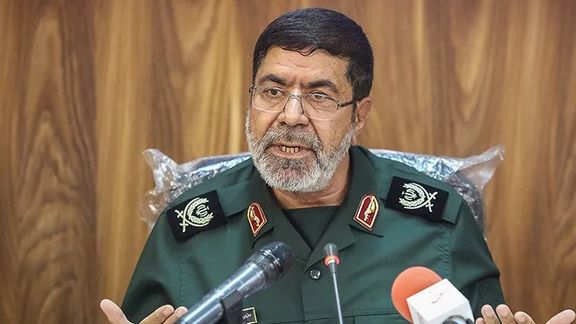
The spokesman for Iran’s Revolutionary Guard (IRGC) has rejected speculations that Israel or any other country has infiltrated the IRGC and its intelligence apparatus.

The spokesman for Iran’s Revolutionary Guard (IRGC) has rejected speculations that Israel or any other country has infiltrated the IRGC and its intelligence apparatus.
Referring to several mysterious killings of IRGC officers in recent months, Brigadier General Ramezan Sharif said on Saturday that the assassinations do not indicate the power of Israel, emphasizing that the Islamic Republic has responded and will continue to respond to their hostile acts.
Referring to the May 22 assassination of Hassan Sayyad in Tehran -- who was in charge of some IRGC operations abroad -- he said that the assassination of an officer in Tehran is not an unimportant issue, but it shows that the Revolutionary Guards do not live separated from the ordinary people.
“The Israelis are extremely vulnerable and live in fear all the time. They repeat that they have the Iron Dome (air defense system) or cyber (systems), which shows their weakness,” he added, noting that they have resorted to psychological warfare due to their failures in the field.
"The Zionist regime is experiencing the worst security condition and is under intense pressure," he said, adding that "Their (Israelis) measures have no impact on the Islamic Republic at all because they are unable to confront Iran."
Following repeated incidents indicating widespread Israeli infiltration in its intelligence and security networks, Iran’s IRGC admitted in June that its counter-intelligence was targeted.
Earlier in June, Hossein Ta’eb, the long-serving head of the Revolutionary Guard’s Intelligence organization (SAS in Persian acronym) was replaced followed by other personnel changes at the top.
The change considered to be a pivotal move by Supreme Leader Ali Khamenei came after a series of unexplained deadly attacks against IRGC officers and other breaches of security in Iran’s nuclear and military installations.
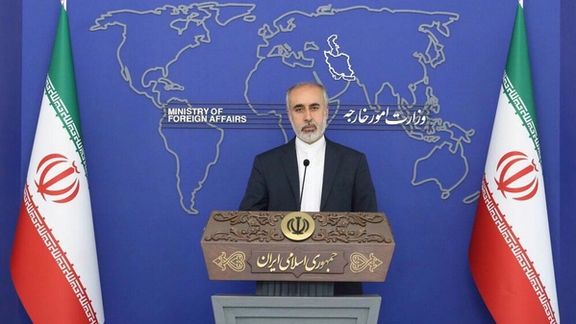
Iran’s Foreign Ministry says all mosques in the world will remain the center of struggle against Israel until the complete liberation of Palestine.
In a tweet on the occasion of the anniversary of the fire at Jerusalem's Al-Aqsa Mosque -- known to Jews as the Temple Mount – 53 years ago, foreign ministry spokesperson Nasser Kanaani said “the Zionists set fire to the Aqsa Mosque... and this was not their first and last crime by occupiers of Palestine.”
"Resistance is the only way to save Palestine, and al-Aqsa Mosque and all mosques in the world will remain the center of anti-Zionist resistance until the complete liberation of Palestine,” he said.
The arson attack on the al-Aqsa Mosque was carried out on August 21, 1969 by Australian citizen Denis Michael Rohan, who initially set fire to the pulpit. Initially, Israelis blamed the fire either on an accident related to ongoing renovations, or to a false flag attack by Palestinian group Fatah. The fire has been described as one of the most destabilizing incidents in the Middle East.
On Saturday, the commander of the Revolutionary Guard (IRGC) Hossein Salami said the war between Israel and Palestinians is not limited to Gaza and has expanded to the West Bank, claiming that many Israelis have been killed in operations by “resistance groups inside the occupied territories,” in the past several months. He added that the number of Israelis killed is significantly higher than the previous year.
The Jerusalem Post also claimed Saturday that Tehran “believes time is on its side” to “erode Israel’s power slowly” by unifying and arming Palestinian groups.
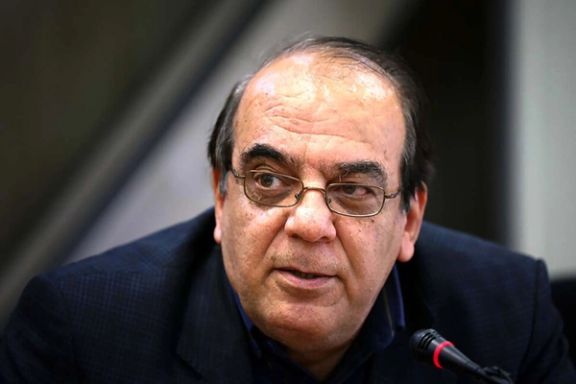
Iranian 'Reformists' have reacted negatively to one of their own for suggesting that nuclear weapons might be good for Iran, but one analyst says it is food for thought.
Centrist commentator Saeed Laylaz’s statements in 'reformist' daily Etemad on August 17, stirred controversy as expected. He seemed to justify Tehran’s alleged move to build nuclear bombs. He said in the interview: “"Peace comes out of gun barrels, not out of agreements," adding that "the knowhow of making nuclear bombs is Iran's geopolitical shield."
Meanwhile, Laylaz ruled out a possible agreement with the United States saying that "all possible achievements of an agreement about the revival of the 2015 nuclear deal would be temporary."
Laylaz also argued that Iran needed good governance and a campaign against corruption to solve its economic crisis, hinting that a nuclear deal and lifting of US sanctions are not magic wands.
Already expecting a controversy, the daily had added a rare disclaimer. Within hours, ‘reformist’ figures raised their voices that Laylaz was not speaking for them. “Mainstream reformists in Iran disagree with Laylaz and believe in an agreement,” said former deputy foreign minister Mohsen Aminzadeh.
Meanwhile, several social media activists charged that Laylaz was appeasing Iran’s Supreme Leader Ali Khamenei following a previous blunder involving an interview published in April 2021 in which apparently Laylaz cornered former Foreign Minister Javad Zarif to reveal Russia’s influence on the revolutionary guards, the IRGC.
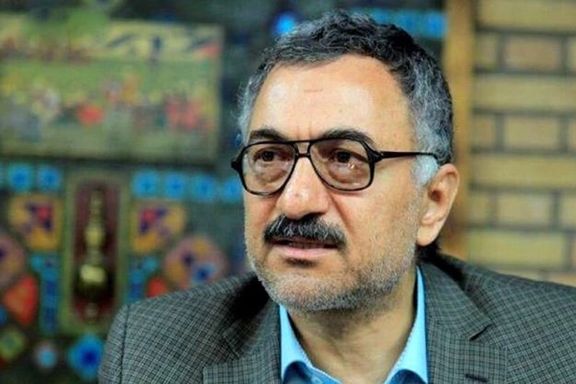
Others noted that justifying Iran’s interest in nuclear bombs would have been okay if the comment was made by a conservative figure. They argued that Laylaz was playing according to the rules of the game that were set by Iran’s hardliners.
Conspicuously, while other reformists criticised Laylaz, his own proreform Party, the Executives of Construction, has so far remained silent.
It is still not clear whether Laylaz made the comments on behalf of the party where he is a member of the political bureau or he was speaking for himself.
Prominent reformist figure Abbas Abdi addressed Iran's reformists in a commentary published by Etemad Online. "A political group with self-confidence should not be afraid of comments that are different from the party line," Abdi said, and added that even if reformists disagree with Laylaz, they should welcome his comments rather than undermine them.
He also argued that Laylaz is an analyst not a man with political power. So, reformists should read his comments and think about them. However, he admitted that laylaz's analysis was characteristically controversial. He also criticized Laylaz for being insistent in issuing recommendations. "An analysis should make you think rather than suggest it is offering a remedy for all maladies,"said Abdi. "Assertiveness is good for a politician, but not for an analyst."
However, Abdi said that reformists comments about Laylaz's statements are regrettable. He accused Iran's reformists of failing to understand the true message of those statements, which was "Analysts should not try to simplify the Iran-US relations. These are not relations that are influenced by individuals. They are the products of a geopolitical situation."
They also ignored Laylaz's key message about Iran's domestic politics, Abdi argued: "Iran's main problem is not the JCPOA, it is one of lack of good governance and campaign against corruption,” and that was also an important message Laylaz tried to convey..
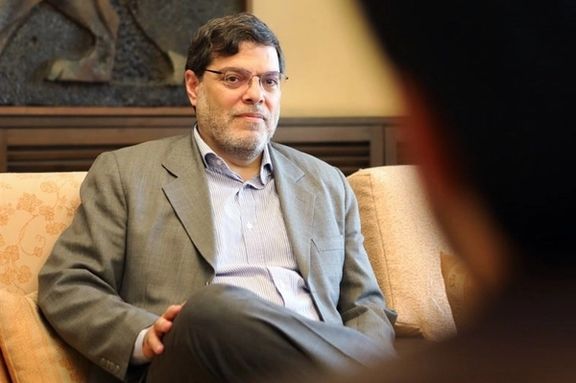
Mohammad Marandi, who acts as de facto spokesman for Iran's nuclear negotiating team, claims that removing Revolutionary Guard form the US terrorism designation was never a key demand for Tehran.
Marandi said in a tweet on Saturday that “I've often said over the past few months that removing the Guards from the US Foreign Terrorist Organization list was never a precondition or key demand.”
“Iran will simply keep CENTCOM on its terror list. But if the US needs to say this to sell the deal, that's their business,” he added.
Marandi’s comment came while talks to revive the JCPOA in Vienna came to an abrupt stop in March, reportedly for Iran’s insistence that the IRGC be removed for the US list of Foreign Terrorist Organizations (FTO).
Marandi, who has been advisor-cum-spokesman for Tehran’s negotiators, made the remarks after a leak quoted Iran's chief nuclear negotiator Ali Bagheri-Kani presenting a detailed list of "concessions" Iran claims to have received from the US, but removing the IRGC terrorist designation was not included in the list. Bagheri-Kani was quoted as saying that the IRGC Issue will be discussed at a later stage with the US.
However, according to the same leak, the US is willing to guarantee that its sanctions against IRGC would not affect other sectors and firms, including companies dealing or affiliated with the military force.
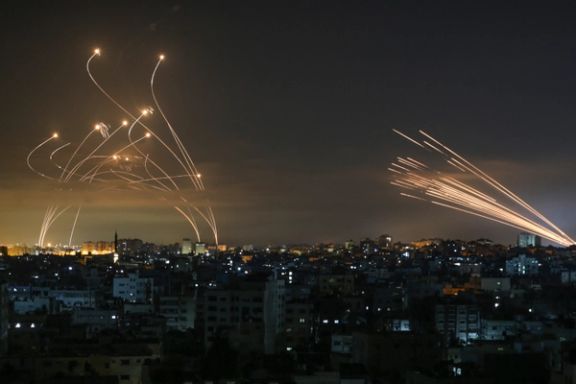
The Jerusalem Post claimed Saturday that Tehran “believes time is on its side” to “erode Israel’s power slowly” by unifying and arming Palestinian groups.
An article by journalist Seth Frantzman cites a Fars News interview with Hossein Salami, commander-in-chief of Iran’s Revolutionary Guards (IRGC), to claim Tehran had begun a plan to forge unity between Palestinian groups by “provoking tensions in Jerusalem, attempting to push the battle into Israel’s streets last year.”
Fars had described the violence in May 2021 – which escalated from protests by evicted Palestinian families in Sheikh Jarah, occupied east Jerusalem, and saw rockets fired from Gaza and Israeli air-strikes – as a “new phase” in which the Palestinians’ struggle had changed “from an intermittent to a continuous movement.”
The Fars report, Frantzman points out, named Jenin, Ramallah, Tulkarm, and Sheikh Jarrah as areas in the West Bank where Iran wanted more of “this pressure-cooker effect.” Salami noted that the Palestinian movement had “managed to equip itself with a large number of rockets” despite the geographical gap between West Bank and Gaza, both historically within mandate Palestine but outside 1947 Israel, and despite Israel building “concrete walls with…extremely modern and advanced…electronic and optical sensors.”
Frantzman also highlights Salami pointing out that to the north, Hezbollah in Lebanon had “hundreds of thousands of rockets…arrayed in front of the Zionist regime.”
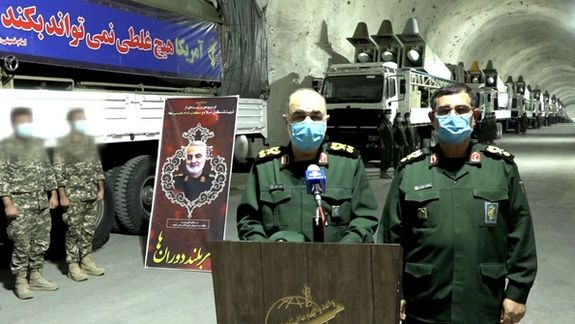
The Jerusalem Post piece argues that Iran aims to drive Hamas into a united command with Palestinian Islamic Jihad (PIJ), which is an Iranian ally and earlier this month was involved in an exchange of fire from Gaza that led to 44 dead Palestinians, including 15 children, and three wounded Israelis.
‘Full-scale ground war’
The IRGC commander’s remarks showing more ambitious plans for regional interference comes as Iran is close to reaching agreement on reviving the 2015 nuclear deal. Opponents of the Biden Administration policy of reviving the agreement argue that it would simply provide more money to Iran for making mischief in the region, by lifting US sanctions.
This single command, Frantzman continues citing Salami, would then absorb “Palestinian factions in the West Bank,” presumably Fatah, and means Iran could “threaten Israeli with a multi-front war,” especially as Iran “mobilizes Hezbollah to control more of Lebanon” utilizing experience fighting Isis (the Islamic State group] in Syria to lead to a “full-scale ground war.”
Neither Salami nor Frantzman explain why Hamas or Fatah would accept Tehran-allied PIJ as such a driving force. While PIJ maintained its alliance with Iran and Syrian President Bashar al-Assad through the Syrian war, Hamas backed mainly Sunni rebels, left its offices in Damascus 2012 and has only recently started talks to resume relations with Assad.
‘Salami politics’
Frantzman disputes Salami’s claim that Israel’s withdrawal under fire from Lebanon in 2000, ending a 22-year occupation, shows Zionists “are not people who stay in the trenches.” Neither does he savor Salami’s wrestling notion that an opponent’s strength can sometimes be turned into a weakness.
But the Iranian plan ignores another factor, the potential influence of Saudi Arabia and its allies in Palestinian politics. It assumes that Iran is the only player in the region, while even Syria has improved ties with the United Arab Emriates.
The IRGC’s approach, Frantzman concludes, hinges on trying to replace the disunity long characterizing Palestinian politics. “The IRGC wants to stop this salami politics, this divide and conquer strategy. It wants the PIJ to united Palestinians, despite constant failure in this respect.”
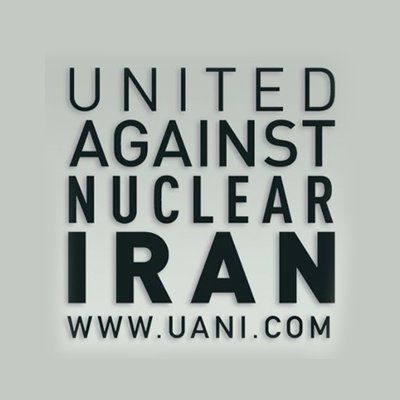
Iranian operatives have targeted several senior members of US-based advocacy group United Against Nuclear Iran (UANI) through surveillance and cyber operations.
According to a report by The Dispatch, members of the New York-based think tank have been the subject of suspected Iranian surveillance operations carried out on US soil as well as various phasing operations believed to be carried out by a cyber warfare group linked to the Islamic Republic.
The report said in addition to threats against former National Security Advisor John Bolton and former secretary of state Mike Pompeo, those being targeted include UANI CEO and former US Ambassador to the United Nations under the George W. Bush administration Mark Wallace, the group’s original funder Thomas Kaplan, and former Democratic Senator Joe Lieberman from Connecticut who currently serves as the chairman for UANI.
In cyberspace, suspected Iranian hackers have attempted to carry out various phishing operations on UANI members. According to UANI these hacking campaigns are the work of Charming Kitten, an Iranian government-linked cyberwarfare group.
Kaplan told The Dispatch, “The threat existed from the very beginning. It’s just gotten more and more pervasive. I’d been sort of given signals that the Iranians were watching, and that didn’t inhibit me. And it still doesn’t inhibit me despite the fact that the threat level is now at an official level.”
“The threats to Americans are multiple, pervasive, and systematic. This is a strategic effort by the Iranians to intimidate, exert their strength—a show of force—because they feel like they can either manage, or deal with, or temper any response,” Wallace said.